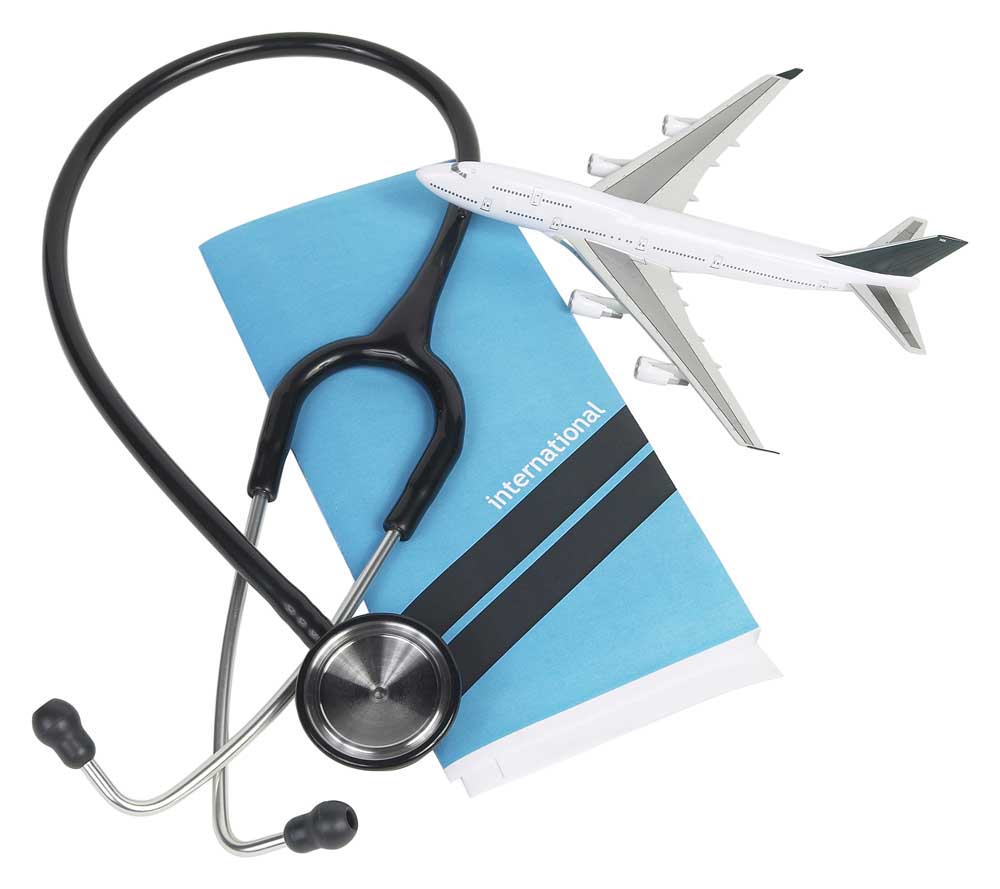Does Medicare Care When You Travel?
Published 12:00 am Saturday, March 14, 2015

- Does Medicare Care When You Travel?
There are many things to consider when traveling abroad. There is of course the flight to arrange, the hotel reservations to make, activities to plan, and you are probably researching the best restaurants to eat at during your stay!
Have you considered during all of this planning what you will do if you become ill, get hurt or lose your medications?
Trending
A medical situation while traveling is an inconvenience at best; and a potential disaster that can ruin your entire trip in spite of the best laid plans. This is not a good time to be surprised by lack of medical insurance coverage. Let’s take a quick look at how this works.
Basic Medicare
The U.S. consists of the 50 states, the District of Columbia, Puerto Rico, the U.S. Virgin Islands, Guam, the Northern Mariana Islands and American Samoa. If you intend to travel outside of these areas it is critical that you understand your medical coverage. In most situations, basic Medicare will not cover your medical expenses when you travel abroad; this includes prescription drugs and dialysis. Medicare pays only in very limited circumstances.
The Medicare.gov website gives an outline of the limited circumstances in which you might get coverage when traveling outside of the U.S. These are as follows:
You’re traveling through Canada without unreasonable delay by the most direct route between Alaska and another state when a medical emergency occurs, and the Canadian hospital is closer than the nearest U.S. hospital that can treat the emergency.
In some cases, Medicare Part B may cover medically necessary health care services you get on board a ship within the territorial waters adjoining the land areas of the U.S. Medicare won’t pay for health care services you get when a ship is more than six hours away from a U.S. port.
Trending
Even within these parameters, coverage is limited. Another thing to keep in mind is that foreign hospitals are not required to submit billing to Medicare. You will be expected to pay all expenses upfront, bill Medicare yourself, and wait for approval and reimbursement of any approved portion of costs.
What if I have a Medigap Plan?
Standard Medigap plans C, D, F, G, M and N provide foreign travel emergency health care coverage when you travel outside the U.S. They pay 80 percent of the billed charges for certain medically necessary emergency care outside the U.S. after you meet a $250 deductible for the year.
These Medigap policies cover foreign travel and emergency care, if it begins during the first 60 days of your trip. It also must be a service that Medicare doesn’t otherwise cover. Foreign travel emergency coverage with Medigap policies has a lifetime limit of $50,000. Foreign facilities will not bill Medicare. You will need to pay out of pocket and submit claims to be reviewed for approval and reimbursement.
What about Medicare Advantage Plans?
Through researching two local companies that offer Medicare advantage plans, I found that traveling abroad poses some dilemmas when it comes to medical care. Depending on the policy, your Medicare Advantage plan will offer some urgent and/or emergent care assistance, but in many cases your condition will only be stabilized and you will then need to return to the U.S. Keep in mind that you will need to pay for medical services up front, submit the bill yourself and then wait for reimbursement. Prescription medications are not covered. Be sure to bring enough to cover the length of your stay — and don’t lose them!
Travel Insurance: The Best Option!
The best way to assure coverage when traveling abroad is to purchase a travel insurance plan. These come in a variety of shapes and sizes, with costs varying depending on coverage needed, your age, dates of travel and destination. One helpful option is to use a comparison website that shows a side by side chart that compares prices and coverage from multiple companies at once. Consumer review sites may be another good place to start looking for a reputable company and plan. Some questions to ask might include how quickly the agency reimburses you for your expenses, if they cover emergency transportation back to the U.S., and if there is an age limit that applies to the policy that you are looking into.
Know Your Options Before You Go!
No one intends to have a medical concern or emergency while traveling abroad, but it happens. It is very important to know what to expect and be prepared in case of emergency. Not only are medical expenses incurred to be paid out of pocket; if you are returning to the U.S. at a time other than originally planned, there could be additional travel expenses and penalties that would be entirely your responsibility. This could be quite frustrating if your long awaited vacation isn’t close to being over! Planning ahead affords better opportunity for a smooth healthcare experience and continuation of travel plans in the case of a medical crisis.
For more detailed information about travel and Medicare, see the online brochure, “Medicare Coverage Outside of the United States,” at www.medicare.gov.








